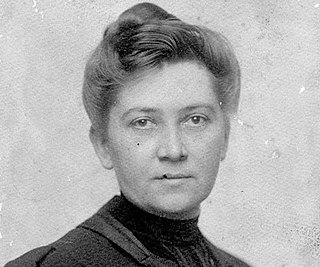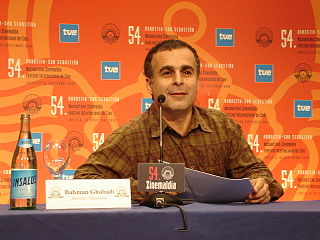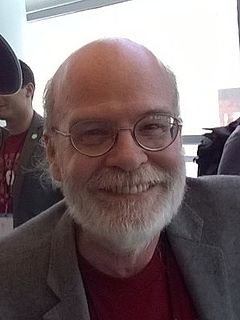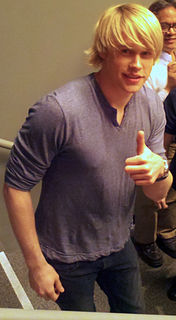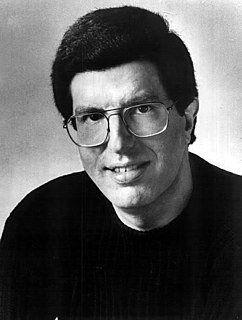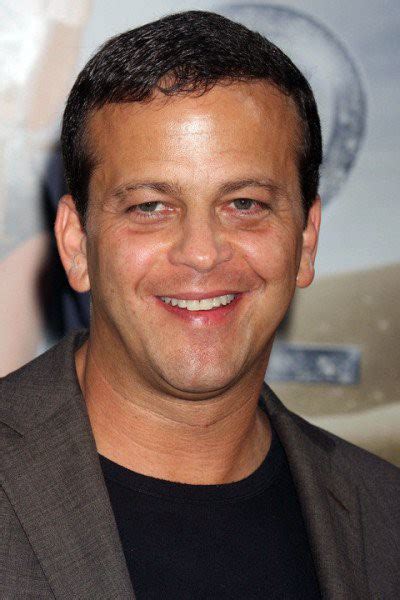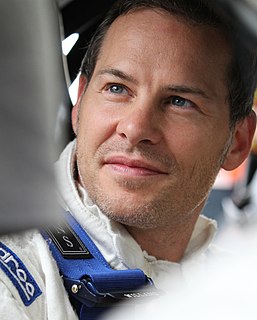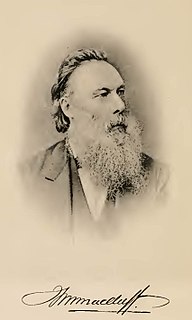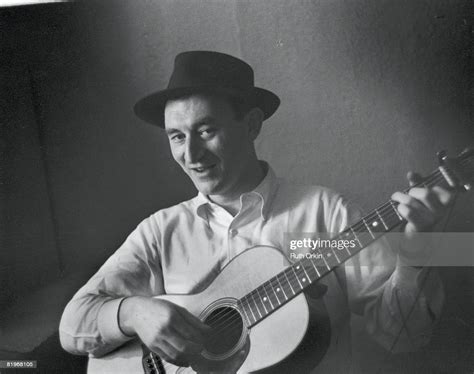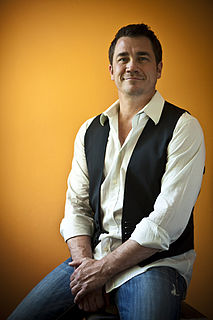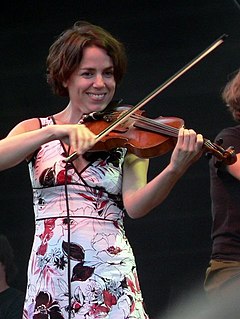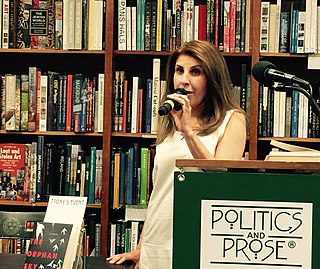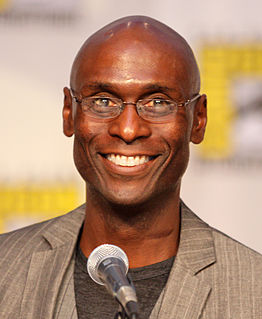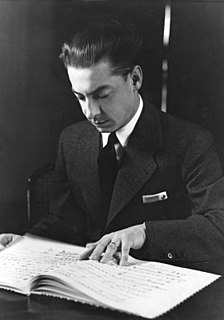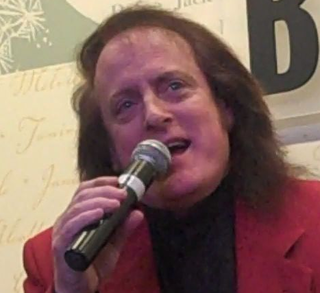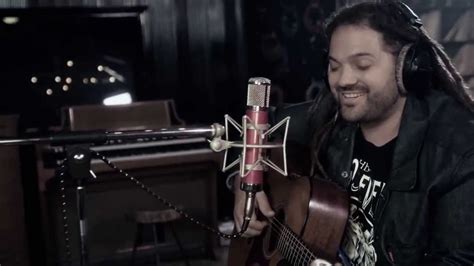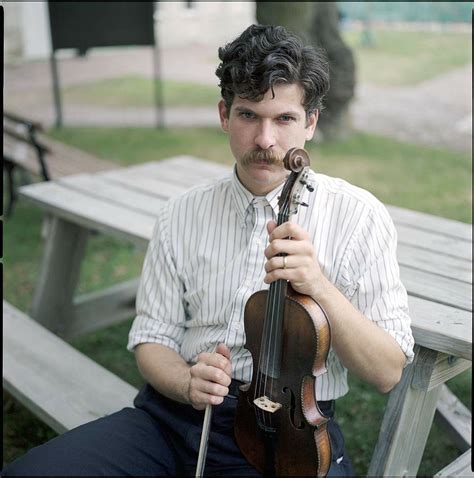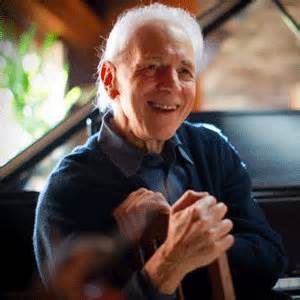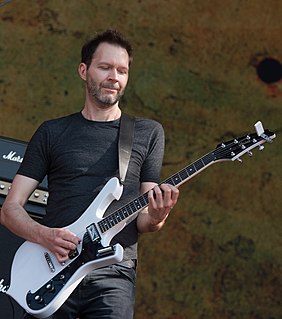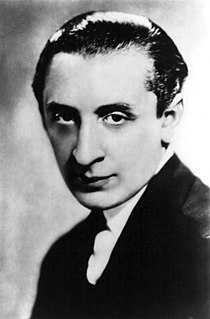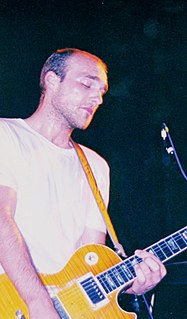Top 1200 Notes Music Quotes & Sayings - Page 5
Explore popular Notes Music quotes.
Last updated on April 20, 2025.
I think now happiness is a thing you practice like music until you have skill in striking the right notes on time. We have no vocation for it. And I had no practice, not a day when I was free from care and one great anxiety - and one must be free to be happy. I know that much about it by having missed it.
'A Fair Maiden' existed in notes and sketches for perhaps a year. When I traveled, I would take along with me my folder of notes - 'ideas for stories.' Eventually, I began to write it and wrote it fairly swiftly - in perhaps two months of fairly intense writing and rewriting. Most of my time writing is really re-writing.
If you go to Japan, they're still buying vinyl, and they want the education. They know who's playing on what tracks from the '60s and the '70s - who the guitar player is, who the drummer is, who the producer was, what studio it was recorded in. That's how I grew up listening to music. We bought albums. We read the liner notes. It was important to know the whole history behind it.
Character is the product of daily, hourly actions, and words, and thoughts; daily forgivenesses, unselfishness, kindnesses, sympathies, charities, sacrifices for the good of others, struggles against temptation, submissiveness under trial. Oh, it is these, like the blending colors in a picture, or the blending notes of music, which constitute the man.
It's easy to forget history or give it a cliff notes. The cliff notes of history. But mainly, so much of what happens in 'Eyes on the Prize' happened in Jackson, Mississippi. Jackson, Mississippi isn't really known for any other touchstone to the movement, other than Medgar Evers being killed. There were sit-ins and riots and atrocities.
I played violin from when I was about eight to thirteen, so I could read a little bit, but if you put a piece of music in front of me now, I would probably know the notes, but not the timing, how they're supposed to be played, and I just don't know how to read chords. If I'd stuck with it, I'd probably have more jobs.
I've always been a fan of instructional videos. The bass-player ones are insane. The music on them is fascinating. It's not something you hear on CDs or would really ever play in bands. You listen to it and are like, 'What is happening?' It's this blizzard of notes in weird time signatures, and they're trying to teach you that.
My fingers traced the melody on an invisible keyboard—my usual way to connect with the music, to feel its emotions on my fingertips. I touched the keys softly, as if gliding my hands through water, but the musical notes kept slipping between my fingers like bubbles, waltzing away in the blue radiance.
Notes are tricky in an audition, because I find, more often than not, my instinct is right. If they have a preconceived notion about the role and it goes against my instinct, unless it makes sense to me, it often throws off what I'm trying to do. Though sometimes they have an insight that I don't because they've been living with the script. I don't have one feeling or another about notes, but it is always a little bit of a red alert when I get one in an audition.
I once took a ride to the beach in L.A., and all along the shore there were all these so-called jazz places. And I saw these college guys and session players playing this fusion Muzak stuff. It was just a lot of notes, and the more notes they played, the more it kept them from expressing anything. So I came back home and got out my Zeppelin albums.
In our profession someone can be very brilliant and acquire total technical mastery. Yet in the last resort, the only thing that really counts is his quality as a human being. For music is created by Man for Man. And if someone sees nothing more than notes in it, this can perhaps be very interesting, but it cannot enrich him. And music should exist for one purpose only; to enrich Man and give him something he has lost in most respects.
The joy is actually in the music. It's the music that supports you and tells you what to do. It tells you how to fill the music. You don't have to be shy about feeling the music when you're singing. If you believe in music-the power of music-the music will support you and take you to another dimension.
I'm not quite sure. Probably because "Hanky Panky" and "I Think We're Alone Now" had more to do with it than anything else. For some reason, staccato eighth notes on a bass sounded like bubblegum. Basically, groups like the 1910 Fruitgum Co. took my early format and kind of perverted it, and made these mindless pre-fab hits over and over. In the 60s, anybody who was making commercial music, that is music that didn't have a political slant to it, or wasn't taking drugs, was bubblegum. And that term kind of hung on a lot of people back then, and it's unfortunate.
They say an elephant never forgets. Well, you are not an elephant. Take notes, constantly. Save interesting thoughts, quotations, films, technologies…the medium doesn't matter, so long as it inspires you. When you're stumped, go to your notes like a wizard to his spellbook. Mash those thoughts together. Extend them in every direction until they meet.
Definition of lecture: An art of transmitting Information from the notes of the lecturer to the notes of students without passing through the minds of either.
Definition of conference: The confusion of one man multiplied by the number present
Definition of office: A place where you can relax after your strenuous home life.
"What people say about me behind my back is none of my business."
Without a human voice to read them aloud, or a pair of wide eyes following them by flashlight beneath a blanket, they had no real existence in our world. They were like seeds in the beak of a bird, waiting to fall to earth, or the notes of a song laid out on a sheet, yearning for an instrument to bring their music into being.
Did you know that the human voice is the only pure instrument? That it has notes no other instrument has? It's like being between the keys of a piano. The notes are there, you can sing them, but they can't be found on any instrument. That's like me. I live in between this. I live in both worlds, the black and white world.
There are two kinds of music. One comes from the strings of a guitar, the other from the strings of the heart. One sound comes from a chamber orchestra, the other from the beating of the heart's chamber. One comes from an instrument of graphite and wood, the other from an organ of flesh and blood. This loftier music I speak of tonight is more pleasing than the notes of the most gifted composers, more moving than a marching band, more harmonious than a thousand voices joined in hymn and more powerful than all the world's percussion instruments combined. That sweet sound of love.
The Chili Peppers do a lot of improvising, but it's within the framework of song structures. The Meatbats is from a purely instrumental standpoint. But when you hear the term 'instrumental music' you think it's real serious stuff and everybody's playing a million notes and it's about playing fast. That's not what we do.
With non-fiction writing I feel like I'm confined and driven by what actually happened. That makes the "plot". So it's a process of getting all of my notes typed up, then scanning through the notes, trying to extract or find certain vignettes that seem like they might write well - that might have a potential for good energy, shape, etc. And then at some point I start stringing these together, keeping an eye on the word count.
The whole gamut of good and evil is in every human being, certain notes, from stronger original quality or most frequent use, appearing to form the whole character; but they are only the tones most often heard. The whole scale is in every soul, and the notes most seldom heard will on rare occasions make themselves audible.
I'm in love with this country called "America." I'm a huge fan of America. I'm one of those annoying fans - you know, the ones that read the cd notes and follow you into bathrooms and ask you all kinds of annoying questions about why you didn't live up to that. I'm that kind of fan. I've read the Declaration of Independence, and I've read the Constitution of the United States, and they are some liner notes, dude.
[Concerning the Water Ouzel, now called American Dipper:] In a general way his music is that of the streams refined and spiritualized. The deep booming notes of the falls are in it, the trills of rapids, the gurgling of margin eddies, the low whispering of level reaches, and the sweet tinkle of separate drops oozing from the ends of mosses and falling into tranquil pools.
People don't go to the record store anymore. It's crazy. The culture used to be so much stronger. People would go and support you, and go pick up the album. Not just for the music, but for the liner notes, for the artwork, just for the whole thing and to have it, and be able to say, 'I have this album.'
Art is a process of concentration. It is both the distilled essence and the commentary upon otherwise mundane activities and reflections. Musical notes must be charged, must gather more than one and the surface meaning, must reveal audible and "inaudible" connections to other notes, patterns, and meaning, either by way of affinity or contrast.
When I'm back at my computer, and/or have more time to deal with the project than when I made the initial notes, I transcribe them into a Scrivener document. I create a new Scrivener file for every project, right at the start, and make a folder for these transcribed notes; when entering them, I title each note document according to date.
Strictly speaking, there are no such things as good and bad impulses. Think...of a piano. It has not got two kinds of notes on it, the 'right' notes and the 'wrong' ones. Every single note is right at one time and wrong at another. The Moral Law is not any one instinct or set of instincts: it is something which makes a kind of tune (the tune we call goodness or right conduct) by directing the instincts.
A scale is just the notes that are in a chord played one at a time instead of together. That's what has allowed me to go through the possible notes that work with a chord and make choices about which ones I like best. I go through by ear; you can do it by theory too, but the best way is to learn by ear.
